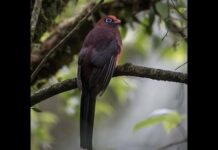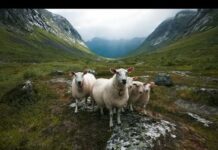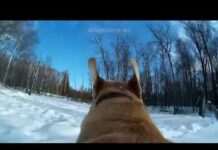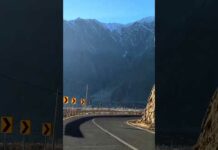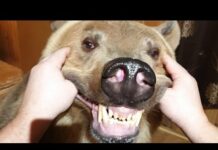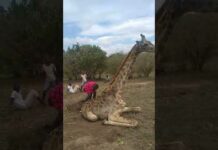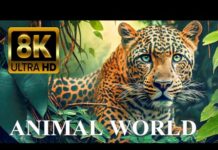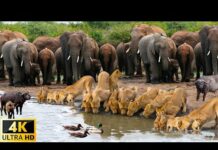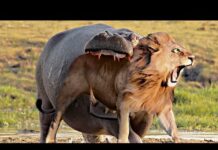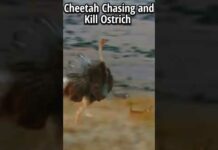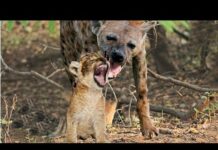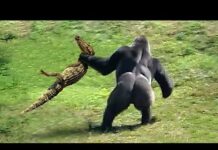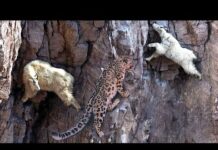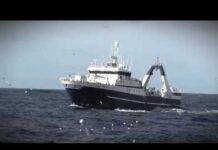Prepare to embark on an enlightening journey as we delve into the depths of our oceans and engage in an intriguing Q&A session with our esteemed Scientific team. This Marine Evening promises to be an unforgettable experience, offering a unique opportunity to interact with our knowledgeable experts and explore the wonders of the Dyer Island ecosystem, home to the Marine Big 5. Our Scientific team comprises distinguished individuals who have dedicated their careers to understanding and protecting our precious oceans.
During the Q&A session, you will have the chance to pose questions on a range of topics, from marine biology and conservation to the latest scientific discoveries. Gain insights into the challenges facing our marine ecosystems and learn about innovative solutions being developed to address these issues.
MC: Cari Roets
SPEAKERS: Scientific Team
Ralph Watson: PhD candidate
Kelly Baker: BSc Biological Science
Sylvia Leva: MSc Marine Science
Xolani Lawo: Senior Bird Rehabilitator
Grainne Perryman: BSc Honors Marine Science
Donations towards the Dyer Island Conservation Trust: https://dict.org.za/donate/
Going to do a quick introduction who they are and also what they're going to talk about so please listen and then when you have questions you know who to ask this equations too we did receive a few questions beforehand so um we'll also throw any of those in between and we do have people joining us.
Tonight online too so just keep in mind we're also streaming and there might be some questions for you I'm gonna try it again um let's make this happen and then we can continue just normal without the mic because I there might be something technical difficulties tonight sorry about that okay so I'm gonna head.
Over to my team on the screen hahaha there we go thank you thank you did you copy it over from the USB um yeah it was like yeah he was starting to get my video so I said they must communicated.
Let's see hi again hi guys my name is bachelor's degree in learning science in International University of Galway Ireland so today I'm just going to tell you about how I see instructions important way of feedback feedback with the speaker and.
Yeah every single month and thank you for January to June so um so in June and in July we had a lot of excitings and adopts have been organized so this is.
For the ocean aircraft Research Institute and so this is the citizen science and it's a lot of fishermen and conservation groups such as ourselves register and if you can tag a lot of fish so we have some problems with other shakes time so we have any of them on approximate of our trips in February we had our we had six items.
We had six and six months later shows on average on every chip and in May and June we had about seven individuals on each trip as well and um July we've had an episode of our Montana sharks this is because we think of the.
Drop in water temperature but also the Sardine one so this is a big feeding event on the east coast of South Africa so we do think this is why our sightings have slowed down on the boats and so with our white chicks and our first sighting was in March I submit two female White Chicks so we had 2.3 meters and 2.5 liter sharks and on Bang Bang.
In June we had 10 in June we had five individual lectures and we had one male like 2.7 meters he was very active and then we had all the rest for females and three of these females were seen in may also and in July we had our last shark sighting of our white shirt this was on the 6th of May this is the same day that we had.
Great Star Wars in the bay they had a quick complete response and we have gone to thank you guys so much for listening and of course you guys on to Sylvia and she'll tell you a bit more of our exclamation point.
I'm just opening my presentation foreign this one is the largest pieces of stingray around the world it can reach in total length so from starting from.
The uh the Tipping them out like deeper of this now until the tip of the nail they can reach up to 5.3 meter in length and they have a wide lens so we plan to sew from one tip of the wing out there to other other tip of the wing of 2.10 meter length and for these species we are starting with an identification of the.
Individuals so we can identify these individuals tend to the spot that have on their head so behind the eyes and for example here we identify this individual that is called speaking so as you can see they have this white spot and they are unique for each individual and since now.
We are we have identified 11 individuals but our research is continuing so we hope to identify more of them and our siding for this year starting from January so we have in January and February we identify 11 studying for the month then in March we have an increasing of 22 siding and in April we had 38 and in may we had the.
Top like we had a peak of 52 individuals for a liquidity in July weekend individuals entry in July our other species that we encounter pretty of them in our trip since the seven year the problem this one is a related to a prehistoric shark so uh and say the name they have seven.
Deals is the only existing species of their family that is called example and the you can see some pictures and we saw in January and February 3 siding of this species and in March we had four for an increasing in April of 18 and a decreasing in May 3 and June and two in June but now we are in July and we just.
Have two weeks of July and we already have the 24 siding of this pieces so in July there is a moral siding of the species and we can see also this pieces on our crops uh that are baby done the water removing videos so are basically there's this structure that is under water around layer Island where inside there.
Are starting and there is one GoPros that is a touch of this structure and his left underwater so it will register videos and then we harmonize these videos and we have seen from the I have a broad nose and Gill shark and we can identify them pretty much in the same way of the short-term Stingray so there were no seven dealership as this.
Particularly what spot on their head that are different for each individual and this now we are identified six individuals of them but also for these species we are trying to identify more and now I will give my report to Kelly that will speak about our sighting also for wearing mammals foreign.
More specifically the whales and dolphins so we have had a few months as a whole experience to be not so nice weather conditions hitting our area which means we have like quite a high number in those sea days however for the days that we have been able to get to see we have had some pretty exciting encounters now the southern right whales.
Have arrived again along our Coastline our first sighting for this species was only 28th of May in that specific site in your day it was actually too individual I don't Southern right here I was saying in separate areas of the bay so a good sign or a good start to the season for us since then the sightings had been relatively consistent so every.
Few days we have had eyes on Southern eye twins the bulk of these sightings have been usually individuals with a few pairs okay all of them so far have been adults in regards to the behavior it has been quite timid with a lot of deep dyes and moving quite quickly through the bay however there has been a few nice moments where they have stuck to the.
Surface watches for us we're hoping that we will see an increase in numbers and we'll also actively of course with the hopes of encountering those debating groups as we head into August now June and July has been spectacular for humbuck oil sightings this is a mix of breaching fluking pectoral slapping and it's.
Primarily the adults that we have been seeing there's been you know the individual here and there but there have been a number of groups seen up to seven individuals in one sighting okay a observation of note from last week the team did encounter a cow calf bed so what we used to usually seeing at this time of year is the adults as they head.
Northwood for reproduction we would likely expect to see a cow Cafe towards the end of the season so later on in the year and the females that have given birth up north are migrated Southward again so quite interesting to already see a calf count half pair especially if there's an area of South Africa okay and the Brutus whale we have a pretty.
Consistent sightings for the first half of the Year again ranging from adults to juveniles and cow calf parents our whilst perhaps this isn't seen as the most active of whale species along this Coastline and whilst this wasn't too recent exciting it was a highlight for the end of 2020 too between the encounter the rare sighting of a.
Breaching brood as well which is not commonly seen and also if you encounters with lunch feeding adults behind the island system here right uh the Dolphins now download our summer months did see a nice number of common and Baltimore Dolphins moving through the area but as we've progressed through the year this has become less and less we do however.
Still frequently see the endangered Indian emotional Dolphins visiting the area our most recent sighting was as of our Thursday morning and we encountered 8.06 just hunting just off the mouth of the estuary the uh we can't forget the biggest orphans that we do see in the area and of course is.
The orders we have had two known encounters with the Orca this year already the first one was on the 28th of February they were singing at the southern edge of the beta and they were seen hunting Broadway seven little sharks uh fast forward our second sighting was on the 6th of June I'm also in the bank.
And I've actually seen from around the Francois Coast Area there and the boats also sort of moving through through the through the day as frania mentioned the 6th of June was the last time that the area saw a great white and that does coincide with the last sighting of the orcas in the area as well okay I will also mention that the team is.
Continuing to collect observational and photographic data on all of our trips it improves but is not limited to the collection of the Indian Ocean humpback dolphin dorsal fin photos this is for our own collection we have just over 30 individuals that live ID for the area but also has and most likely will contribute to the Susan project this is.
An inter-group collaborative work that is done for this species in someone who watches we also collect the images or photos of the Brewers whale store something and this is to assist the whale unit and with the lovely humpback whale sightings we're working hard to collect and this is something that we submit to.
Happy way our most recent submissions including two very distinct tale patterns on the 11th of July so just last week I was thinking if I have anything else to add to it now I do have just a short clip to show you all before I passed you over to Kalani so you can talk to you about the.
Penguins just that a few clips of our humpback whale encounters humpback dolphin encounters and there is a sneaky Southern right whale came in there from last year as well foreign guys sorry.
All right oh my God thank you very much everyone good evening everyone my name is uh our work for African painting it's it's century and I've been there for eight years now but working with humans for 40.
15 years now so most questions I get from the people that are human or I said no there's no other chance because my work is fun and uh dealing with the clever beds and most people they're not really aware about that all that and that is why every day if I mean people are always invited to come and see the work I'm.
Doing there so sometimes it's like a threat especially if we talk and then there's a um these women or something and then I'll invite you to come and volunteer and doing that I know I've got two or three ways that might sort you out but you're not really aware because what happened maybe last month so what I do.
At X is that we do save Penguins or we'll rescue penguins and I always make sure that I tell everyone you know what it's very important that showing respect the Fishermans because most problems come from them and sometimes like midnight then so the first question is that what were you doing like two o'clock in the morning you told me that.
There is a human that we found area on but you never found me so but I don't complain at all humans so what is very important is that um the first five days we police keep them separate from the rest of the payments and the following day we will take Bloods we do classmates and we also speak industrial cells count so that's.
Really important and sometimes we name the Penguins because it's easy when you um phone me and ask about your opinion how is it doing if it's got a number remember every year from January until the end of December we give numbers them so you asked me about um they B7 African people number seven which is for eight years I've been getting I've been in.
Prison number seven so if you mention that okay the name of the opinion was okay maybe I would easily understand and go go back and check the file and give you the report but we try our best to inform everyone just to keep that interest so that if you go out fishing or you walk on the beach and just keep close eye and um because these guys are.
In England and um today we are sitting on ten thousand bringing us so 2015 when we open apps it was like 18 power 30 days so the number is still decreasing back in so it's very important we have to have more people on our side just to look at what was just a team of four people so if we use the.
Community or any visitors please look up for these specs and reports or anytime the number is 24 hours so in the beginning I told him I said you know what I think I'll switch off my phone in a data plug but that's all I would say so outside one's job so that's it so 24 hours and yeah we still hear our best to educate people that comes to apps we do.
Have small quotations so that is why I'm passing this message so I used to have no kind of people that I know but every Sunday we don't come and support us so now I think after college I don't see those big numbers then so I'm just trying to pass a message but I didn't mention this please guys don't let us down come.
We have cheesecake carrot cake and about this just away from the King myself so last year we managed to rescue about 310 humans from Germany to end of December and mostly it was the Abundant chicks it's like every second year we do get chicks that happening by the parents for the molecules clutching with breathing.
Suits in there so before the year before last it was um bedroom so also the baby but I know from the beginning when Robert FC used to be F second year we'll get a lot of energy and we need more hands to help us because the team five people we start at six o'clock in the morning getting ready cutting Fish Tales and.
Crushing medication to the electrolytes and then by the time you finish the morning shifts around about half past two hours then it's almost time to get ready for the afternoon feed so that means there's no lunch time so that's where we use most people come to Florida GMS they compare that they stand too much but that's our job so the guys.
Asked for the Penguins ask for food so they don't stop yeah yeah Sims have been sitting and check and say no it takes almost 30 minutes for message to deliver from the stomach to the brain that you know you've been fed but they keep on asking them so we didn't have a lot of penguins that we.
Are affected by the bedroom but the cheap comments they are hiding along with loss like um thirty thousand of those commands for the bedroom and the bad news now it is back so yeah um now I picked up three days ago they call it the southern New Moon by the essence of episode.
so the reason I'm mentioning this is that sometimes I get calls especially totally and then they have the freshwater beds and when I said no Noah we are not allowed to have made his beds and there is some but maybe we don't want to do our Job Corps we can't.
Get home but it's a risky there's no cure for very true so if you require it so we get it inside tabs then we might have to close the center for six months so it's very tricky so please if you follow me about the bed and I said I cannot take a hint even though I try my coordinates to come up with a plan but please understand that it's obesity for.
Us so right now I'm focusing on all the sick days that come in and then I have two guys and the IMVU volunteers helping us to feed the payments send them to my cabin watch the thing when feeding and they don't sing it outside so I might be busy at the back or hiding because for being them obedient and then as.
Being told no I'm not allowed to touch any of these pigments and I have my favorite ice cream with inside there which is some of them know our enemies built on so so it's really not fun for me to watch someone else kind of feeling I'm not there so I love to keep my relationship with lots of those tables and they are more.
Like a family to me so yeah um not a chance that I can follow with my children so this year we've already had like um 40 payments like the numbers uh what have been admitted and we've released um thing to expect at least 14 things back on my Island I've got eight now that I might get to talk to any and um.
They are ready to go so all of those bits we do with my coaching just to keep um checking them or we see where they're going but only if they arrive with the colonies we have ground readers so it works like an old speed drive so there's a cable that is being laid down on the island on the colonies so when they.
Return I'm from fishing or I will sing then they have if they jump over that cable then they send the signal so that's how we know that um and then I think there is one that was in Cape Town Robert Highlands here so we picked up three where in recent uh buying this guy Sanko in Cape Town.
2018 is the hand raised penguin and they visit us in last year and we don't incubate between windstates because I'm scared you know what it's very tricky those guys it's not easy to change but if you hand raise a penguin and then they get attached and then they imprint then you will be in trouble because I've.
Noticed when the 100 um he was held with example and every time it's feeding time of indicates is always the best to relax and then you kind of Chase all the elements away because they just want to have special attention but we gave me a second chance if you manage to survive for three and don't see so he's gone now.
But we have this one upon a number so I keep on um changing every time we um before we release and um yeah England's bites you for no reason sometimes so I tell people I still come for everyone even though they buy me so now that they hate him sometimes they're confused and so as soon as they realize Noah for three days.
This person will are bringing fish it becomes more like a five-star hotel for this so if they're on the goal so I don't I understand it but yeah they have to go back in the world so sometimes um that's so impressive when it comes to beds yeah I've talked to limit the understanding and maybe you look at yourself a.
Different way than maybe he's increasing or what no I'm not they understand me sometimes I will just um ask the question and then I know these three if I move my hair and they follow what they have but if you're not really checking if you think they really understand what I say but it's the head movement that I'm.
Doing there so yeah it is Founders and um are also tell the parents or just to encourage the um the youngsters no one even if it's cold holidays you are more than welcome here we noticed that from 16 years now to handle things but 13 14 we make sure there is enough work for them.
So which is um if you tell us okay bringing two kids tomorrow the guys are going to the laundry and take all of those girls off the cards and then throw newspaper area just to have kind of work for them so it's kind of fun and then at the end they'll get the photos and also the letter from us saying that how much time they spent.
Um having the beds or that and then sometimes I'll go out before feeding maybe two o'clock get in check so this family has been sitting here for almost an hour waiting for a feeling there so my focus I'm always go focus on kids because I want them to remember okay how is it like to visit the Cleveland Center so I always like.
You know what let's forget those you and you and you you follow me the whole family is here so I always try to bring the fun okay there's four kids and then there's two parents one of you is Gonna Come with me and the kids and then I check the direction from the other parents okay why are Hitman why is he leaving me behind and now I.
Just kind of stand the argument sometimes oh I'll see you know what we get here eight o'clock in the morning I'll take you to the bank and then you help me describe and then you check the parents face and that's where it is enough that's my friend I want them to wake you up foreign.
Once you get to know me then you never say no he talks forever so that's my problem is that if I start talking then it's not easy to stop it that's my problems oh yeah forget about it totally for that yeah.
last year November because thank you okay.
all right my name is a marine biologist with marinemics as well in the conservation trust I covered on the academy and also like head of research so basically what I'm going to be talking about is kind of like some of the projects that have been busy with over the last quite a long while so.
I'll try to keep it a little bit short in this day all right so some very great news that has been happening is that we've been part of two fantastic Publications that came out two weeks ago uh both of them are incredibly a hell of a lot of amounts of work that went into it uh one was run by the wild trust uh.
Systematic conservation then identifying critical areas for improved community and protection in South Africa so basically what this publication did was take a look at any old threatened pandemic shark species in South Africa later than on top of the let's see like where's the highest University happening in South Africa which needs to be most.
Protected overlaiden with like various levels of fishing pressures and the current Marine protected Airline Network already in place and then identified which area should we look at next when it comes to protecting shark species so the Fantastic publication that came out of it and this will move forward through.
Government and will be taken into account especially considering the Marine protected areas you don't just want to look at sharks you want to look at as many different marine species as possible different habitats all of that and then we were part of a publication that we had the genetics of South Africa's catch sharks basically what has.
Been done in the past and where do we are where are we now uh we provided a lot of samples for that as well and some fantastic information came out of that uh our two little shy sharks that we get around here and endemic to South Africa the papetta and the dark side shark technically the brown shark as well but they're a little bit further east.
Practically impossible to talk about genetically it's like some really interesting genetic sequences that came out of that one and hopefully in the future they'll be taken into account when it comes to like conservation measures around those species another fantastic project that Ireland conservation trust has run England's in.
And of itself revolves around the beautiful Sunfish that we get in this area for those of you who have been on the Marine uh been five vessels will probably have seen some of them absolutely amazing it's twins since 2014 the members of sunfish sightings in this area have skyrocketed especially in the last two years since like 2021 2022.
After covet and like the numbers are ridiculous and you compare it to right in the beginning of the survey and we this was run with uh Sandra who was also our rail biologist currently in Iceland and also one of our Marine Dynamics Academy interns started this project looking at the data in our databases and yesterday afternoon.
Got accepted by an African Journal of Marine Science so it will be published in the next couple of months foreign student found some very interesting communication on these uh underwater cameras normally perhaps I used to look at the diversity in an area because.
That's pretty much the easiest thing you can look at what species are we seeing around here however he noticed something very fascinating in the top left hand corner you can see there's a little leopard catch shark hanging around and when you look at the video in Hampshire for quite a while and then suddenly in the top right hand corner there's a.
Smooth and sharp that pops in and when that happens and the leopard catch shark kind of like moves in that direction he sees the smooth down shark and he breatheses solid it just kind of hits the ground doesn't move a muscle and the smooth sound shark doesn't even see him you can almost like barely see him in the corner over there as well so.
Fantastically camouflage the slow thumb kind of moves around in the area before the party and the 10 seconds after the screws how the shark is gone does the lender catch our final goal and keep on moving um hasn't been seen on brother before we have looked at the literature and this kind of stuff you don't see every day so.
Um we're gonna at the end of October there's South African shocks and ready Symposium having happening in Durban and we're gonna present on these findings as well and then also that's also heading towards and you spoke about sevengill shark and the bottom right hand corner absolutely beautiful animal uh we actually deployed.
A few Brothers on last Friday and there was also like a seven below shark hanging around in this area still but yeah still going on still going strong uh we're trying yellow yeah so we're trying about we're trying about 20 deployments a month uh give or take depending on the weather conditions doesn't always happen but some fantastic.
Side things octopus absolutely lovely there we go um but yeah very sharp species that we see in this area as well and it's like one of our projects that we keep on move going on uh moving further uh then also some very interesting news uh so we will uh grandia spoke earlier about.
The Ori tax so these are little uh Dart tags that people put in sharks and fish and stuff like that uh Margaret catcher you put it in it's got a unique little code on it and the next animal is captured you can read off the code and you work with the oceanographic research institute and you can see where these animals are moving around the South.
Africa's Coastline how long are they hanging around in a particular area yeah where do they go how long do they live and some fantastic growth data coming out of that as well however there's a little bit of a problem there that works on it on species bigger than 30 centimeters and when you take a look at our little shy sharks they've got a.
You put the tag in right next to the dorsal fin and you can see the dorsal fin area around the catch up is very very narrow so if you put a tag in there and you it goes wrong you can damage that animal and it's not something that you want so we actually had a student Amy who she was one of interns last year she moved on to do her Masters at the.
Moment and she decided to take a look at the stock patterns on these sketchups to see can we track individuals over time using the natural markings like a very closely like a leopard and she's found some very interesting sightings Still project is still ongoing so hopefully like we're definitely keeping an eye out on this project as well.
And lastly uh we also continuously monitoring our Island cross Estuary every week we go we look at the environmental parameters temperatures dissolved oxygen and salinity and obviously we look at our bird diversity as well as as some of you might have noticed uh Estuary at the moment is incredibly dark but that's basically.
Purely fresh water coming down the river as a result of all the rainfall of the last month so pretty much fresh water all the way down to the surf zone however as a result of that you can also going to get a lot more fresh water bird species hanging around the Estuary your yellow belt Ducks your cape shovelers all of those so yeah we've been.
Monitoring that as well uh gray Heron still hanging around we saw a purple hair the other day as well absolutely fantastic and last week we saw uh four juvenile Fish Eagle circling the Estuary with two adults hanging around as well so absolutely unique encounter makes me love this Estuary more and more every time I.
And yeah that's pretty much the short update of some of the stuff we're doing of course we're doing other projects as well but some of it is like a little bit slower underground slow moving with all of that kind of stuff but yeah thank you for listening just need to find the magic spot here all right guys thank you for listening.
To everybody introducing themselves and just giving you a snippet of what they are working with and what you guys can ask each of these team members on the screen you can see Mr X here at the side he is our senior birthday rehabilitator and he's all about penguins I'm just going to recap everyone quickly then we've got guanya she is on white sharks.
And bronzuela sharks Sylvia all the way from Italy is talking about seven hills and short tail stingrays then we have Perry Baker all about whales and dolphins and Dane Ralph is talking about our projects and research all right guys so I'm going to open the floor I'm going to try this mic out but like I said if he's gonna give us any trouble.
I'm gonna pull it off and when you ask a question please make sure it's loud enough for everybody to hear right thank you so much let's get going um you guys want to start um yes you mentioned that the whales go up north we have the events and we all came around in October November.
September to watch the mums come and give birth cat an alarm is did everyone hear the question no no so you're asking why we stick around in the area when what you said they went up north to have their babies so the the question relates to reproduction in the whales I mentioned the Northwood movements.
Um for reproduction so it's very much species specific so for example with our humpback whales they generally need the warmer waters for reproduction so you'll find the adult whales moving up north to say up as North as Mozambique waters for mating yeah so they're going to do a ride up the coast here um and then the females from the.
Previous years mating will come back to those warmer Waters up north to give birth to the their calf those warmer waters are just seen as a more comfortable or productive area for the humpback whale reproduction whereas our Southern right whales that species will actually come to this area these cooler temperate waters for reproduction so you.
May find The Mating happening at this time of year we're hoping to see that coming in the next few weeks um and then the females again from the previous year will come together so it's really species specific humpback whales even your brood as whales you know you might find in the temperate to warmer Waters but our Southern right whales are.
Going to reproduce give birth in these school or watches down here so it's fine to stay here I'm very much looking forward to the true Southern right whale season where they they have their calves in the area foreign.
is going to work all right so yeah it's really really unfortunate about what's happening with the orcas and the white sharks and all of that however because we're not sure what the exact cause is it is a natural phenomenon never the mind that it is impacting our economic situation it is.
Natural however the yeah this just requires like just to find out like more aware of these guys coming from uh what is the cause of what they are doing here however these are also marine mammals and once you start crossing the line of okay I don't agree with this animal let's shoot it you're crossing a line.
That becomes easy and easier to move along and then where do you stop it's like oh what about like a southern Right Whale or humpback whale that also becomes a problem animal how you immediately gonna jump to shooting that one as well because it's a problem animal so it's a very very tricky line at the moment governments uh.
It's the assist with government and at the moment their stance is we are not interfering with this because as far as we are aware it is a natural phenomenon all right they kind of end up at the same time once more if it makes noise I'll just talk loud okay all right uh I think my my question is for for.
Rain ground yeah yeah okay um you mentioned that you deal with the blue pointers sorry the great points um six female sightings one male sighting is there something there in depredation from the Walkers of the ladies smarter all right and I'm going to take this one for for grania.
Um historically speaking the white shark data for the area there has always um been certain times of the year where perhaps we see a dominance from the females or dominance from from the Bales historically speaking again uh we would expect to see the dominance from the females for the majority of the Year say perhaps nine months of the year it would.
Be a lot of the females coming through uh then there's certain periods of the Year where we wouldn't see perhaps an increase in the the male great whites an example would be say uh pre-2017 we had a winter season where we had just moved to the island here and uh it was nail washer yeah uh whether or not the orcas have taken a liking for.
The males um I couldn't tell you that or if the females are smarter I'm not going to make them and yeah so also in Tanner and JL 2013 she did do a study on and the great whites and how temperature can affect them and the males seem to prefer the warmer water and the funeral seems to.
Provide the colder water and so we have had colder water in the last few months they're helping a lot more females than our males and the job we're not sure about the business thank you thank you democritious you can only go you know let's say your own range of research and how does it overlap with other similar views the.
Universe either yourself of the country okay so the question was how the research that we or yeah your research yeah our research yeah so how far it extends and how we if we overlap with other groups as well uh so the majority of the research that we do is primarily focused on the huntsby area however because.
Obviously our shark species do move around or are found elsewhere around South Africa we do collaborate with other groups around the coastline we do some collaborations with Sask the shark observancy across the bay in hermanus however we collaborate with people in Stellenbosch University UCT going all the way to Graham's done with the.
Acoustic tracking array platform so the acoustic tracking of animals around our Coastline those are pretty much the main people that we work with I know that we collaborate with c-shirts with the humpback whales as well we collaborate with the whale unit in hermanus as well and some of those.
Research like if it overlaps it extends outwards as well so yeah I think that's pretty much a good summary it can share research sometimes all this is your assistant so you can pick up information freely available in some situations yes so for example the acoustic tracking rate platform that we work with.
So we look after some of the acoustic receivers of them and there's a private array in the bay as well and if we tag an animal here then and if that animal moves around South Africa all the way up to Mozambique then if the data gets downloaded from their receivers then go that goes to Eta and then we can turn to atypical hey have you heard any of our.
Animals moving around and then we get that data as well and then vice versa so if we download our data we send it to atab and anyone else's research that happens to any other person's tags popping up on the acoustic receivers gets picked up and shared as well the acoustic tracking array platform runs pretty much from Cape Town all the way.
Up to Mozambique and yeah so we share and collaborate on that's front yeah we've done some stuff in I think like we went to Mossel Bay last month in regards to a white shark uh predation and cropsy there as well so yeah most of our research is very generally focused here but because of its own the animals not only being found.
Here we collaborate across the country and yeah and internationally so I know that the penguin with the nest project we've got collaborators in America as well a lot of our students and people come from Europe yeah just like yeah internationally like it's difficult to keep track of like all.
Those things like National and international yeah and local inside of that slightly different questions so it's about this coin operator that funds fans is always my dependent yeah so my sister and I had the great pleasure of being in the coffee shop today.
And have the hot chocolates in the cake but what struck me there is we walked in the places plastered in the Volkswagen advertising all over the place bwbw and I said to my sister that's wonderful they have a big International Corpus is behind some in office we were quite comforted that there's money I need to be told by the center that since.
Lockdown they've been they've pulled out they know they don't get one sale for VW now the problem I have if that's true yeah the VW should back pay them and plan for everything they put their advertising into all the stuff you agree if it's wrong in the center shouldn't you know have misinformation now when I went if I walked in there today and they.
Said desperately needing an international sponsor when you view to the different subject you're walking there are things like vws yeah it doesn't spark getting new money so there's a problem VW wrong they need to be it's moral control it really is I don't want to take the money but we have to because we always are streaming.
Yeah with sound troubles we've had um as we're trying to sort everything out we're running on generators and electricity and the power cables and it's all the base so apologies and thank you for just watching the students that is a very interesting story so we started painting over it because yes that's the last thing that we want.
People to think that we've got a big corporate sponsor behind us because we do not so the birds hadn't been able to go out it was the first time in 12 years that it happened that the birds have not been able to go out for 10 years if the boats don't go out the conservation work.
Suffers but the conservation will will never stop I've done two trips in three weeks to Strays by to go pick up Penguins the Mount of Egypt Birds Penguins sick Birds it does not stop even if the birds Don't guard the boats needs to it needs to go out because that's the only way that we can fund the conservation the conservation work we do.
So without books while from there and trying to fade over it we do need a new sponsored but we are counting like on you going there with your family bring your family going out on the birds we absolutely rely on that if the birds don't go out we cannot fund that but Wilfred will never ever say no for an animal in need so we would still drive.
Out so we really really need your support to see people on the Eco tours on the whale watching on the shark H diving so that we can find all the automation work so you're right but Volkswagen we're not it's so hard to just get through to them and just send another email and a follow-up and saying to them hey how's things going can we.
Meet with you again it's new people they don't care so all we have to do is buy paint and paint all over it and get a new sponsor or just rely on our boats going out and you supporting us and sending friends and families to guards on the whale and Shop tours all right then of course we will people must support it but Paul Simon shouldn't be.
Should then not get away with that kind of thing they've loved the having their name attention something needy and not giving us it that is moral Force yeah we were like maybe it will get better maybe they will come back to us maybe and we were begging them and it worked we want to bring all kinds of things wow.
Foreign all right I'll also want to answer that but now they're going to say I'm not a scientists okay so I really really want to answer that question but because it's going to be published I also want to do a marine evening after I give you a couple of.
Months time so I want to do some spoilers but um okay so that was a very very interesting like observation as well so the question was like okay between orcas white sharks and sunfishes like it's the Sunfish are skyrocketing the white sharks are declining in the Orca cell are kind of moving through how does that.
Work now the interesting thing is why charts and orcas are both known to predict on Sunfish I don't know why they apparently they're quite tasty um what's also very fascinating Sidetrack is that Sunfish are incredibly agile when it comes to dodging forecast but it doesn't always work.
Nevertheless yes we was very fascinating is because we had a very uh present white shark yeah white shark presence in debate white Sunfish numbers were were very low after 2017 the white shark numbers started to decline and the Sunfish sighting started to go up and obviously like right on there like if you look two.
Years before that and two years after that there's a mirror image flip which is really really fascinating which kind of suggests that the white shark pressure on Sunfish has been lifted and suddenly a sunfish is just going like free real estate yeah however it was also fascinating is that the orcas are coming through and.
Predating on Sunfish however the orcas are not a consistent presence they're like Kelly said like we saw them once in February we saw them once last month like a week ago a couple of weeks ago there was like a few sightings they're not very sporadic so literally like they come through hang around for one day if at most and then they move on.
Again so that pressure consistent pressure is not there so it was also so initially around 2017 there was like a very interesting pivot however even after that the numbers have started to increase so it suggests that there might be another underlying pressure Factor at play we suspect it might be.
Sea surface temperature that is just becomes like a lot more pleasant for them over the last couple of years however that time frame does not necessarily uh line up perfectly over the since 19 1990 to 2000 or something around that the benguela has dropped in temperature by a half a degree on average so it has.
Become a little bit colder which might be a little bit more pleasant for them as well however the publication is very much like preliminary and for more like a baseline where you can see like hey there's this very interesting present pattern occurring here let's take a closer look at it so yeah the part of the reason why we're publishing it is to.
Kind of provide like a indicator saying like hey guys something's changing here now we need more funding to take a look at that as well you you sang earlier on that you've been uh recently talking with Mossel Bay are they facing the same type of uh situation there.
Are the Sunfish coming up that is the same what is the situation with the predation of great whites throughout the rest of South Africa or is it specific to the ethereum so yeah in regards to the white sharks it's kind of like the Orca seems to be like moving eastwards and like they've uh killed a white shark last month in.
Mossel Bay as well in regards to Sunfish I'm actually not 100 sure like we really focus with sunfish in this area however there is a student at UCT that is currently looking at Sunfish sightings around South Africa and seeing like is there a change in pattern Nationwide uh now that our data has been accepted and once it's actually published and out.
There we're going to provide our data to her project as well so it provides like a more information for her study to see what is these trends that are going on not just locally here in Huntsville but Nationwide and other patterns elsewhere as well and the second question is from Chris Cross he wants to know maybe not around.
Here maybe for us what does the fresh water running into the bay mean for the animals that live there thank you okay I'm gonna take that one for gronya um so the question from Sam about the Orca um interaction with the bronze waiters um we have had evidence for orchestra dating on France waiters in the area as.
Well I believe it was in February 2020 2019. 2020. so a few years ago um hey carcass did wash up on the area and the team examined that and the wounds were consistent with all Corporation as well of course as the medicine liver so we do have evidence that the orgas do Target the bronzuela.
Sharks however saying that we haven't seen this Lake the same flight response from the bronzuela so when those orcas come through as gronya mentioned uh we see quite a quick exit from any white sharks that we have been seeing in the area however with the bronze window sharks it doesn't seem to influence them to that extent we haven't got you know.
Those numbers or individuals leaving the bay with the sighting of the orgas so it has been evidence of interaction just not the same or to such an extent as the great device all right and the other question by Chris was on the effect of the fresh water runoff into the bay and what kind.
Of an effect that has so what's very interesting is if you go to the island cross Estuary month at this point you're going to see the fresh water going all the way down right up until the surf zone and then your ocean is kind of like pushing back right at that boundary now there will be some fresh water obviously running off into.
The ocean but because of the currents and all of that kind of stuff it gets diluted relatively diluted and Scattered about relatively quickly so in regards to an effect um there might be a very sure a small effect right there at the base where like the like at the beach and like I'll cross a.
French Crown area and you might see some short-term changes there however despite the fact that in some areas the marine environment is very sensitive on the other side is incredibly resilient and it will bounce that from that even if it's like a short-term like fresh water push that comes through so I wouldn't worry too much over it like a.
Long term there might be some changes in the short term as a result of a lot of fresh water coming through and that species there don't liking it very much but again yeah what marine environment is more resilient than we sometimes give it credit for foreign it happens sometimes there's one thing.
On an apps Andrew last year when it after I finished molting it happened but it kind of get a Double Horse double bed on his neck and then if you walk in there for the first time and then you look at the other Penguins let's say you are used to a Harmon penguin or magnetic and then you see you know what you get easily.
Confuse the two so every year it's always um different it's not the same but I must say um the only way I tell people Noah this thing was um the only difference when you compare them to the other beds yeah they are very tough they also um chicken they fight about so which is now again.
The Hamburg penguins and um they also have this similar um I'll say they almost have the same way so my African finger just say um the only difference from the other base that are tough and I'll tell people that they are the living proof that after they're not processes so yeah that's how I I identify them from the other birds.
So again I tell people if you handle African penguins and you're comfortable and then that means you can handle any payment species so they are very careful right because um I've never um yeah that's but I think because we never have them in the same area or the aquarium and they also.
Careful about that they I don't think they ever mix the two species that but um like um the reason I'm saying is that it happens that we had um there was a Macaroni Penguin that was actually the Eastern Cape and then also the same time they were our parents so we were told not to get them in one area because you can easily if it happens that they breed.
Which is there's no proof that they believe before but it's I think it might happen if you haven't been in the same area like is it ancestored yeah foreign it's a program on the computer just to identify it so it does it for us and yeah thank you okay guys we've got.
Yeah all that last year sometimes actually load of one into long shots what's the story um okay so even though like we don't like it at all unfortunately sharks are legal to be caught uh this is species specific so obviously the white shark is.
Protected others certain other species have certain protection measures in place as well um however if you've got the right permit uh there are fishing practices that are do allow for catching off and selling of shark species so yeah what's the rest of the question sorry well.
It's legal yeah oh that's also like it pretty much goes into some of it is local markets like short built on and stuff like that others go to the international market uh China Far East Asia Australia it's very tricky to designate or like point a finger in it somebody is saying like hey our sharks.
Are going to that place mainly because the data is not necessary readily available to show like where the animals are or like where the meat and stuff like that is going so basically what you've got to do is follow the money and unfortunately that falls outside of our range when it comes to like.
Forensically tracking where do our catches go in that situation okay everyone uh we do have a few questions that were submitted prior to the evening that people would like answered okay I'm going to to try to answer this one we did have a question relating to edible.
See read or plan so the question was what C ocean plants and grasses are edible and can form part of the human diet where and how to harvest how do you prepare and what's the nutritional value is the questioner in the room currently okay this is this is a quite an involved question I'll try to break it up so what.
Sea grasses or plants are edible um in your South African Waters it's estimated there's a there is approximately 800 different species of seaweed now the South Coast do is thought to be the most diverse uh with approximately 250 to 300 species found in these Southern Waters.
Can you eat them technically you could eat them if you really wanted to that's got a lot to do with Personal Taste okay so um are they all palatable uh texture and taste wise not necessarily you might find that some of them are very tough some of them are very bitter and perhaps not that enjoyable.
Uh and there is one species that I would warn against perhaps not to to consume and that is known by the common name of acid seaweed um now that is a species of seaweed uh from your brown algae family or group and uh it does have uh abundance in areas where there's high levels of kelp forest so we do have an abundance of the.
Acid seaweed in our area here and it has a pretty nifty little uh chemical property to it that will deter grazes from feeding on it and that is that in the cells in that plant you're going to find sulfuric acid okay they do not consume that one you might not feel so well so.
The next section of the question where and how to harvest um now seaweeds have hold fast so they don't have the traditional root system you're going to find that most seaweeds are going to have to attach to a rocky substrate so along your rocky shores is primary where you're going to find seaweed that you.
Can Harvest now the aim would be to go at low tide so you don't have to deal with the water and of course preferably you know for our spring tides where that water is is really low um I would also mention that you should have a permit to.
Harvest this I don't want to get anyone in trouble so you should have a permit to harvest these things and also if you are harvesting it's best to keep an eye out for areas that perhaps have or stay clear of areas that have stagnant pools of water or perhaps areas where there might be a bit of runoff just because you might have some.
Contamination around those areas how to harvest um I guess we can start off by saying do not pull the entire plant so back into the whole fast again um you know given the chance if you don't remove the entire planet you'll.
See where you can actually regrow or rejuvenate so if you are harvesting seaweed it's recommended that you're only going to take about 50 so half to three quarters of the plant to allow it to rejuvenate again so just a clipping of the blend um yo how do you prepare it again you know.
This topic is very broad it dependent on the the spaces itself and again your your personal taste um it is completely fine to eat fresh raw seaweed uh if you want to do that a quick butter rinse and uh you're good to go if you do want to keep it for later you can dry it and that can easily be.
Done in the sunlight on a nice flat clean surface or hanging over a line and then stored in an airtight container for use at a later date again you can eat it dry or you can rehydrate it and use it in a number of of recipes nutritional value again very broad your seaweeds tend to fall into three different groups uh your green algae.
Your brown algae and your red algae each of these groups you can think of it like vegetables you know each group of vegetables has its own health benefits or nutritional value and the same can be said for seaweed overall what I can say broadly about the seaweed nutritional value it is rich in vitamins such as you know your A B's c's for.
Those of us that are lacking in our vitamin B's many of your seaweed species are very high in B12 I you're also going to find that it's rich in vitamins um but minerals sorry um I guess the important mineral to bring out with seaweed is iodine the reason why I bring that one up is because we.
Need it for thyroid function but our bodies don't actually naturally reduce it we have to get it from our diet and some of your species of seaweed are very high in higher time for example some of the species just one serving a day is enough of your iodide daily requirements so one serving let's say one cup and of course it's a Amino amino acid so it is.
A healthy um product to consume if you've got any vegetarians or vegans in the room uh you're also looking at a very high source of plant protein did I cover that yeah apologies that was quite a long-winded one oh my gosh oh I will also mention thank you.
Thank you um if anyone is Keen to go to try some seaweed uh the Great White House does actually serve it I see people go no now um just uh here in the Great White House the chef has given us a little bit of an idea of what he uses um over which is actually a green algae it's quite a popular one because it's.
Got quite a mild taste to it um kelp of course lever labor is a part of the the red algae family or group most of you have probably actually eaten that before um has everyone tried sushi yeah labor is the group that Nori comes from okay Dead Man's finger tongue tongue there we.
Go so the Great White House does uh work magic with with seaweed if anyone does want to give it a try um okay uh I'm gonna take the one at the top of the list but it's kind of like across the board it's a few questions and they basically revolve around marine.
Biology as a career if interested to become a marine biologist which school subjects do you need um is there any educational institutions available in our area to study marine biology is the facilities only available for young students is residency available the cost to study marine.
Biology and a typical day in a marine biologist's life is the person that asked that here present a very interesting question and it's like it's actually also a very difficult question to answer because it's just incredibly broad it really depends on what are you looking for when marine biology comes to mind as a career a lot.
Of people say like I really want to become a marine biologist and it's sometimes different than what you expect so which school subjects do you really need again it really depends on what you're looking for we're scientists so we need a lot of science subjects in school and then when you go to university followed by a bio.
Biology career path basically and tend to focus on the marine biology side going along the way however there's not just the only course available some people they want to dive and be in the underwater environment as much as possible in that case you don't have to go down the academic career path get a dive license like scuba diving and get.
Practice in that and once you're really like comfortable in that area get involved with people that will do like need to collect data underwater and you can become like a by marine biology by biologist by proxy and like collecting data on behalf of other people but still being involved in that environment other.
People who are not comfortable being in the water or they're like not academically inclined spread the word like a science communication is so incredibly important as well especially in today's day and age you're okay we're all sitting here like talking to you guys but science communication is incredibly difficult.
And a lot of scientists are not good at it so you need those people who can translate that stuff really easy to the wider audience and not inundate people with high e-technical jargon that's called going to bore everyone to death so being able to kind of like communicate properly and communicate it on somebody's behalf perhaps is also.
Incredibly valuable uh as a career um and then yeah what else is like we've got guys on the boat it's like again the science girl like communicating science collecting data around the same time uh we've got crew on the board that are absolutely fantastic involved with marine biology so again like it kind of depends on what do you see yourself or.
What does a person see themselves when it comes to marine biology that kind of defines which direction all right uh is there any education oh do you want me to pause for this live streaming or shall I just continue yeah okay oh sorry just interrupt I.
Think the live streaming is done for me
We are excited to present to you the captivating video titled “Marine Evening July 2023: Q&A Session with our Scientific Team”. Get ready to embark on a journey of enjoyment, smiles, and laughter as you watch this delightful creation. “Marine Evening July 2023: Q&A Session with our Scientific Team” is a perfect blend of entertainment and amusement, carefully crafted to bring joy to your day. From the moment you press play, you’ll be greeted with a cascade of lighthearted moments, heartwarming scenes, and perhaps even a few surprises that will tickle your funny bone.
Whether you’re in need of a quick pick-me-up or simply looking for some light-hearted entertainment, “Marine Evening July 2023: Q&A Session with our Scientific Team” has you covered. The video promises to deliver a collection of moments that are bound to leave you grinning from ear to ear. With its engaging content and skillful presentation, “Marine Evening July 2023: Q&A Session with our Scientific Team” is more than just a video – it’s an experience designed to brighten your mood and spread positivity.
The creators of “Marine Evening July 2023: Q&A Session with our Scientific Team” have poured their creativity and dedication into crafting a visual treat that resonates with audiences of all ages. Through expert storytelling, impeccable timing, and an array of engaging content, “Marine Evening July 2023: Q&A Session with our Scientific Team” promises to be an unforgettable journey that lingers in your memory long after the video concludes.
So sit back, relax, and prepare to be entertained as you dive into the world of “Marine Evening July 2023: Q&A Session with our Scientific Team”. It’s a delightful video that aims to bring a dose of happiness to your day, leaving you with a lasting smile and a heart full of laughter.
This video was uploaded in youtube and has recieved 159 views so far. This is a great achievement and laso it has received 6 likes and .
Data bout the video:
Rating: ,
Video dimensions: 2d,
Video definition: hd,
Video duration: 01:25:05,
Video favourite count: 0
Video comment count: 0


